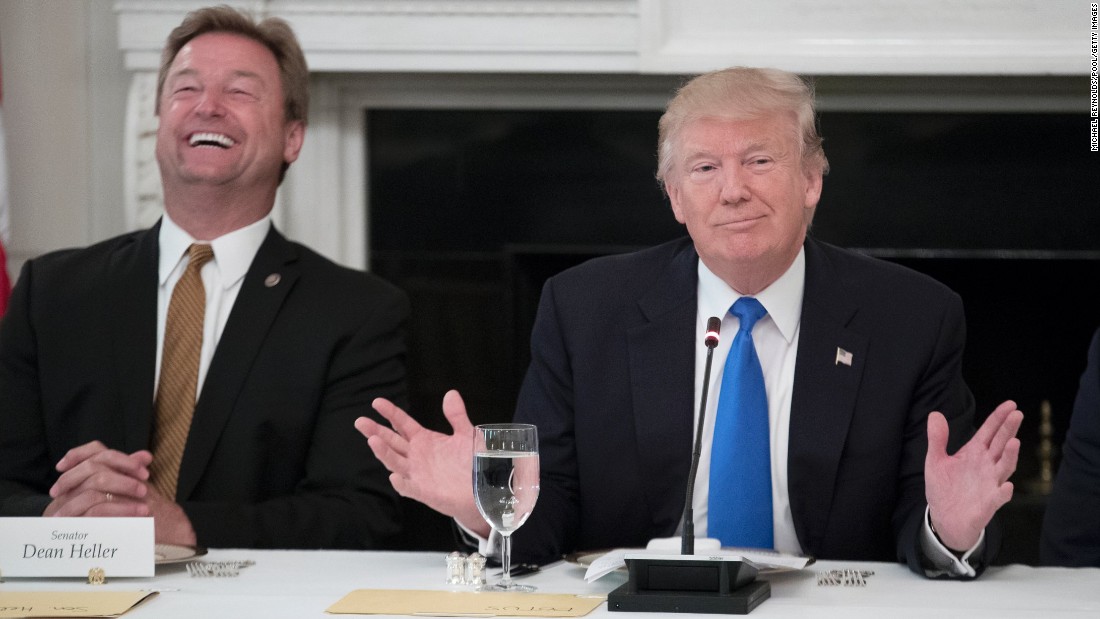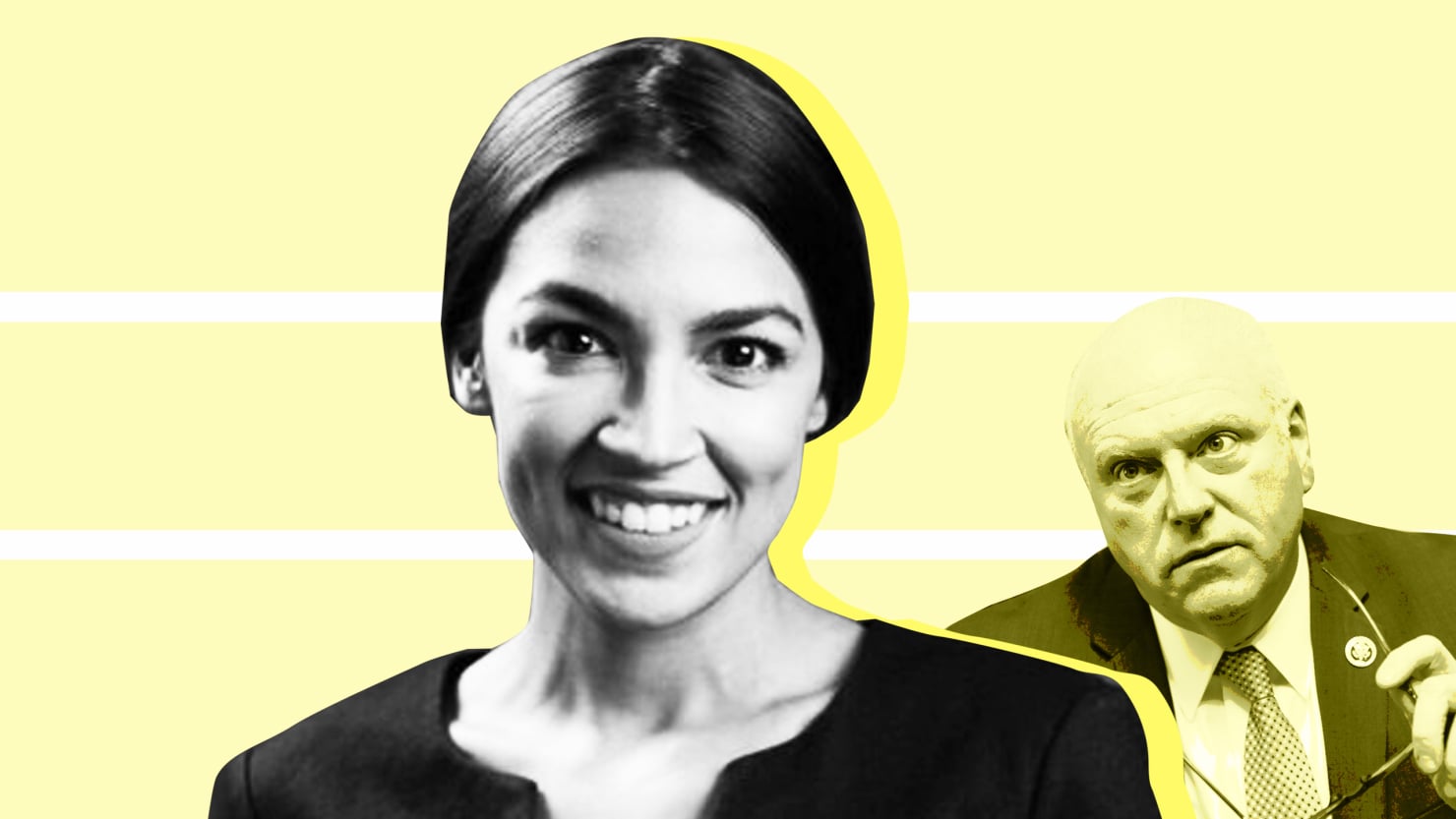When it comes to the complexity of American politics, the multi-month effort by congressional Republicans to repeal and replace the Affordable Care Act (also known as the ACA and, of course, Obamacare) has been instructive. Party leaders, advocacy groups, health industry stakeholders, government agencies, and the media all weighed in during the divisive process. This illustrated the sheer number of differing interests affected by and invested in shaping health care policy.
For those who view all government action through the prism of “money in politics,” however, such legislative debates could not be any simpler: Congress is just doing the bidding of “creepy billionaires” and narrow “special interests.” The recurring talking point that best encapsulates this simplistic and misguided perspective is the claim that Senator Dean Heller of Nevada, a staunch critic of an earlier version of the Senate health care plan, essentially switched his vote because of pressure from donors.
To free speech restrictionists, the sequence of events tells the whole story. First, Heller came out publicly against Senate Majority Leader Mitch McConnell’s plan. Then, he faced angry phone calls from Sheldon Adelson and Steve Wynn, two casino magnates and large Republican donors. Finally, lo and behold, he switched positions and voted for the bill.
But the simplistic nature of this narrative doesn’t pass the smell test. For one, the bill that Heller publicly came out against in June was not the same bill that he voted for in July. The so-called “skinny repeal” bill kept much more of the ACA intact, including its expansion of Medicaid. That is a significant policy difference. (Indeed, some conservatives also accused Heller of being “on the take” from “corporate America” for voting against a different repeal bill).
Setting aside that significant fact, there are several potential factors in Heller’s “aye” vote that are much more compelling than “donors made him do it.”
First and foremost is the pressure exerted by his own party. Republican leaders like McConnell and even President Trump (who had publicly threatened Heller in person for his vocal opposition) made it clear that health care is a legislative priority and that they would lean on potential defectors. As should go without saying, party leaders have a great deal of leverage to get their members to fall in line. The majority party’s top brass effectively controls the agenda and even the organization of Congress, meaning it can elevate or sideline issues of importance to certain members and give or take away committee assignments. Such carrots and sticks form the basis of congressional politicking. The willingness of a party to withhold or even reverse electoral support can also greatly undermine lawmakers’ chance of re-election, particularly for those like Heller who already face an uncertain future.
Second, Senator Heller’s past words and promises could have come back to haunt him. Congressional Republicans from all wings of the party had been united in their opposition to Obamacare basically since its inception. It helped fuel their resurgence in Congress and their retaking of the White House. Heller, for his part, had frequently criticized Obamacare, and was even an original co-sponsor of the “Repealing the Job-Killing Health Care Law Act” in 2011 while in the House of Representatives. Even if some praised his early criticism of 2017’s repeal efforts, Heller may have angered base voters who supported him on the basis of his longstanding opposition to the ACA. If angering donors poses any risk to Heller, it is probably because the attack ads they could fund would find an already-receptive audience in angry Nevada Republicans.
Finally, it’s possible that Adelson and Wynn’s opinions did have an effect on Heller’s final vote, but not in the way activist groups suggest. The two men are highly influential in the gaming industry, which is key to the economy of Nevada’s largest city, Las Vegas (not to mention other cities like Reno). If the health care status quo is harmful to the prosperity of a major industry in Heller’s state – and, in turn, the economic health of the hundreds of thousands of Nevadans that industry employs, state tax rolls, etc. – then he would likely feel an obligation to vote for reforms that would protect that industry, and thus benefit his state’s interests.
Those three theories of party pressure, voter pressure, and economic pressure are already more than sufficient to explain Heller’s vote on one of several health care plans in the Senate. They don’t require the presumption of selling out to donor preferences on Heller’s part.
It’s no surprise that supporters of greater campaign finance regulation will use any story they can to elevate their preferred policies. And because they constantly argue that the political system is “rigged,” they have essentially trained their supporters to always view politics in the most corrupt light possible. That enables these anti-speech activists to spin sweeping, accusatory narratives with just a few supporting (or non-supporting) facts.
But this knee-jerk instinct to focus on the role of donors above all else is wrongheaded and overly simplistic. Reducing the complexity of American politics to one simple explanation makes it harder to truly understand what is happening in government. Any student of American politics should know that.














